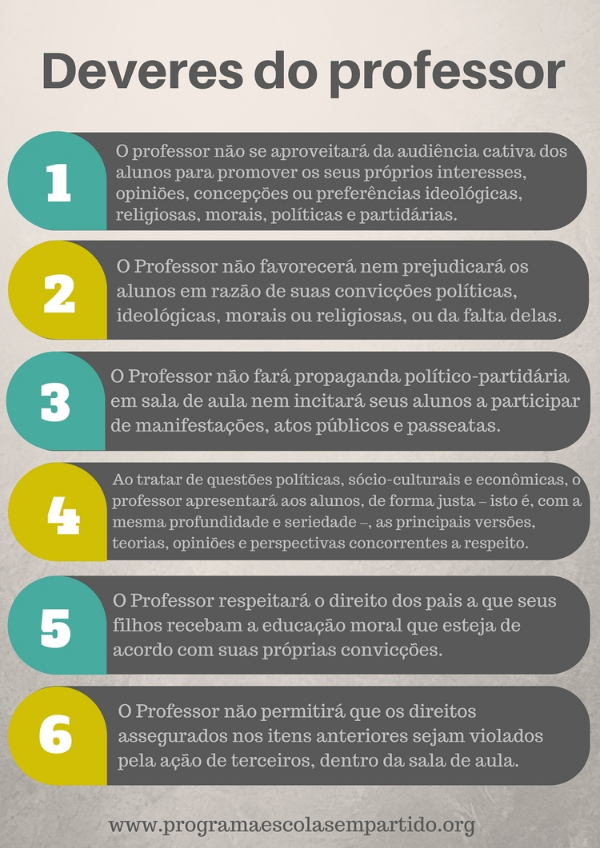Translations from the Wokish

leftist philosopher Daniel Dennett: “[I]f I encountered people conveying a message I thought was so dangerous that I could not risk giving it a fair hearing, I would be at least strongly tempted to misrepresent it, to caricature it for the public good. I’d want to make up some good epithets, such as genetic determinist or reductionist or Darwinian Fundamentalist, and then flail those straw men as hard as I could. As the saying goes, it’s a dirty job, but somebody’s got to do it.”
Lo que está mal con nuestra civilización puede resumirse en una palabra: irrealidad. No estamos en peligro de caer en los vicios o las virtudes de los vikingos; estamos en peligro de olvidar todos los hechos, buenos y malos, en una neblina de fraseología moralista. G.K.Chesterton.
What is wrong with our civilization can be said with one word — unreality. We are in no danger either from the vices or the virtues of vikings; we are in danger of forgetting all facts, good and bad, in a haze of high-minded phraseology.
G.K.Chesterton

Gran parte de la historia social del mundo occidental durante las últimas tres décadas ha implicado reemplazar lo que funcionaba por lo que sonaba bien. En un área tras otra (crimen, educación, vivienda, relaciones raciales), la situación ha empeorado después de que se pusieron en práctica las nuevas y brillantes teorías. Lo sorprendente es que esta historia de fracasos y desastres no ha desanimado a los ingenieros sociales ni los ha desacreditado.
Thomas Sowell, «Is reality optional?»
«Inside Every Progressive Is A Totalitarian Screaming To Get Out»
 @Horowitz39, David Horowitz
@Horowitz39, David Horowitz
It may be inferred again that the present movement for women’s rights will certainly prevail from the history of its only opponent, Northern conservatism. This is a party which never conserves anything. Its history has been that it demurs to each aggression of the progressive party, and aims to save its credit by a respectable amount of growling, but always acquiesces at last in the innovation. What was the resisted novelty of yesterday is today one of the accepted principles of conservatism; it is now conservative only in affecting to resist the next innovation, which will tomorrow be forced upon its timidity and will be succeeded by some third revolution; to be denounced and then adopted in its turn. American conservatism is merely the shadow that follows Radicalism as it moves forward towards perdition. It remains behind it, but never retards it, and always advances near its leader. This pretended salt bath utterly lost its savor: wherewith shall it be salted? Its impotency is not hard, indeed, to explain. It is worthless because it is the conservatism of expediency only, and not of sturdy principle. It intends to risk nothing serious for the sake of the truth, and has no idea of being guilty of the folly of martyrdom. It always, when about to enter a protest, very blandly informs the wild beast whose path it essays to stop, that its “bark is worse than its bite,” and that it only means to save its manners by enacting its decent role of resistance. The only practical purpose which it now subserves in American politics is to give enough exercise to Radicalism to keep it “in wind,” and to prevent its becoming pursy and lazy from having nothing to whip. No doubt, after a few years, when women’s suffrage shall have become an accomplished fact, conservatism will tacitly admit it into its creed, and thenceforward plume itself upon its wise firmness in opposing with similar weapons the extreme of baby suffrage; and when that too shall have been won, it will be heard declaring that the integrity of the American Constitution requires at least the refusal of suffrage to asses. There it will assume, with great dignity, its final position.
~~R. L. Dabney. “Women’s Rights Women”, 1897
If the truth is boring, civilization is irksome. The constraints inherent in civilized living are frustrating in innumerable ways. Yet those with the vision of the anointed often see these constraints as only arbitrary impositions, things from which they-and we all-can be ‘liberated.’ The social disintegration which has followed in the wake of such liberation has seldom provoked any serious reconsideration of the whole set of assumptions-the vision-which led to such disasters. That vision is too well insulated from feedback.
“El judío está siempre ansioso por asesorar al negro, pero nunca le aconsejan cómo resolver su problema de la forma en que los judíos resolvieron su problema. El judío nunca se manifestó con sentadas, arrastradas, deslizadas o subiéndose a buses, como enseña y ayuda a hacer a los negros. Los judíos se pusieron de pie, se unieron y usaron su poder supremo, el arma económica. Con las donaciones de dinero, el judío gana el control, luego envía al hombre negro a hacer todas esas protestas sobre sentarse, aburrirse e incluso enterrarse – todos menos comprar.
El judío nunca le muestra al negro cómo montar fábricas y hoteles. Nunca le aconseja cómo ser dueño de lo que quiere. No, cuando hay algo que vale la pena poseer, el judío lo tiene. El judío está detrás del movimiento de integración racial, utilizando a los negros como herramienta».
(Malcolm X)
Archbishop Chaput comes to mind: “Truth without compassion wounds and repels, mercy without truth is a comfortable form of lying.”
«La verdad sin compasión hiere y repele, la misericordia sin verdad és una forma cómoda de mentir», Arzobispo Chaput
Our consciousness is a staging area, a field of operations for all kinds of enterprises, which make free use of it. True, we are at liberty to think our own thoughts, but our independent ideas, such as they may be, must live with thousands of ideas and notions inculcated by influential teachers or floated by «idea men,» advertisers, communications people, columnists, anchormen, et cetera. Better-regulated (educated) minds are less easily overcome by these gas clouds of opinion. But no one can have an easy time of it. . . . Public life in the United States is a mass of distractions. By some this is seen as a challenge to their ability to maintain internal order. Others have acquired a taste for distraction, and they freely consent to be addled. It may even seem to many that by being agitated they are satisfying the claims of society. The scope of the disorder can even be oddly flattering: «Just look — this tremendous noisy frantic monstrous agglomeration. There’s never been anything like it. And we are it! This is us!» – Saul Bellow
«Clericalismo ha habido siempre, y el de hoy no es invisible. Por ejemplo, cuando un Jerarca de la Iglesia se cree más infalible de lo que es, y aun más que el Padre Eterno, eso es alto-clericalismo; cuando un súbdito afecta creerlo, es bajo-clericalismo.
Hoy día es más castigado el que se atreve a decir que un Jerarca se equivocó, aunque eso sea patente, que el que dijera que la Santísima Trinidad tiene 4 personas: Padre, Hijo, Espíritu Santo y el Obispo»
Padre Leonardo Castellani (1899 – 1981)
“The Tao, which others may call Natural Law or Traditional Morality or the First Principles of Practical Reason or the First Platitudes, is not one among a series of possible systems of value. It is the sole source of all value judgments. If it is rejected, all value is rejected. If any value is retained, it is retained. The effort to refute it and raise a new system of value in its place is self-contradictory. There has never been, and never will be, a radically new judgment of value in the history of the world. What purport to be new systems or…ideologies…all consist of fragments from the Tao itself, arbitrarily wrenched from their context in the whole and then swollen to madness in their isolation, yet still owing to the Tao and to it alone such validity as they posses.”
― C.S. Lewis, The Abolition of Man
“A society in which conjugal infidelity is tolerated must always be in the long run a society adverse to women. Women, whatever a few male songs and satires may say to the contrary, are more naturally monogamous than men; it is a biological necessity. Where promiscuity prevails, they will therefore always be more often the victims than the culprits. Also, domestic happiness is more necessary to them than to us. And the quality by which they most easily hold a man, their beauty, decreases every year after they have come to maturity, but this does not happen to those qualities of personality —women don’t really care two cents about our looks—by which we hold women. Thus in the ruthless war of promiscuity women are at a double disadvantage. They play for higher stakes and are also more likely to lose. I have no sympathy with moralists who frown at the increasing crudity of female provocativeness. These signs of desperate competition fill me with pity.”
― C.S. Lewis, God in the Dock: Essays on Theology and Ethics
Una sociedad en la que se tolera la infidelidad conyugal siempre debe ser, a la larga, una sociedad adversa para las mujeres. Las mujeres, digan lo que digan algunas canciones y sátiras masculinas, son más monógamas que los hombres: es una necesidad biológica. Donde prevalece la promiscuidad, siempre serán más a menudo las víctimas que las culpables.
Además, la felicidad doméstica es más necesaria para ellas que para nosotros. Y la cualidad con la que retienen más fácilmente a un hombre, su belleza, disminuye cada año después de haber alcanzado la madurez. Por el contrario, a las mujeres realmente no les importa tanto nuestra apariencia y las cualidades de personalidad con las que nosotros retenemos a las mujeres no disminuyen con la edad.
Así, en la despiadada guerra de la promiscuidad, las mujeres se encuentran en doble desventaja. Juegan con apuestas más altas y también tienen más probabilidades de perder. No simpatizo con los moralistas que fruncen el ceño ante la creciente crudeza de la provocación [sexual] femenina. Estos signos de competición desesperada me llenan de lástima».
«Cuando era joven, el simple hecho de rozar con mi mano la pierna de mi mujer me hacía vibrar y sublimarme; hoy, después de muchos años, el roce físico ya no remece mi imaginación ni mis sentidos, pero si mi mujer perdiera esa pierna, sería como si la hubiese perdido yo» Miguel de Unamuno.
A lo que se reduce el «multiculturalismo» es que puedes alabar cualquier cultura del mundo, excepto la cultura occidental, y no puedes culpar a ninguna cultura del mundo, excepto la cultura occidental. — Thomas Sowell

[El periodista preguntó al ministro:] «¿Tomará medidas el gobierno francés para […] atenuar sufrimientos que rayan lo intolerable?» Nada era tolerable ya para Occidente, tenía que meterse eso en la cabeza, a golpes de neurosis provocadas. Si moría de miseria, entre millones de humanos, un solo indio de los Andes, un negro del Chad o un pakistaní, ciudadanos de naciones libres, responsables y orgullosos de serlo, Occidente creía un deber suyo extasiarse de arrepentimiento. Quienes lo agitaban lo conocían bien. No le pedían siquiera que se sacudiera la cartera de una buena vez y adoptara a los cuatro quintos del Globo que flotaban vagamente a remolque suyo. Apuntaban a la cabeza, nada más, a los lóbulos lejanos de donde el remordimiento, la autoacusación y el asco de sí mismo, exasperados por mil pinchazos, acababan por escaparse y extenderse a través de un cuerpo sano súbitamente aquejado de leucemia. ¡Era intolerable!… ¡Evidentemente! ¡Era intolerable! ¡Vaya pregunta! (Jean Raspail, El campamento de los Santos, 1973)
«Pero, posiblemente, lo que necesitamos por encima de todo es conocimiento íntimo del pasado. No porque el pasado tenga en sí alguna clase de magia, sino porque no podemos estudiar el futuro y necesitamos algo con lo que comparar el presente, de manera que recordemos que los presupuestos esenciales han sido muy diferentes en distintos periodos y que gran parte de lo que a los iletrados les parece verdad simplemente es una moda pasajera. No es probable que a un hombre que ha vivido en muchos lugares se le engañe con los errores locales de su pueblo natal; el erudito ha vivido en muchas épocas y es, por lo tanto, inmune en cierto grado a la enorme catarata de tonterías que se vierte desde la prensa y los micrófonos en su propia época. » C.S.Lewis, Learning in Wartime, 1939)
«Crecía cada vez más la impresión de que en la Iglesia no había nada estable, que todo podía ser objeto de revisión. El Concilio parecía asemejarse a un gran parlamento eclesial, que podía cambiar todo y revolucionar cada cosa a su manera. Era muy evidente que crecía un resentimiento contra Roma y la Curia, que aparecían como el verdadero enemigo de cualquier novedad y progreso. Las discusiones conciliares eran presentadas cada vez más según el esquema de partidos típico del parlamentarismo moderno. A quien se informaba de esta manera, se veía inducido a tomar a su vez posición a favor de un partido. […] Si en Roma los obispos podían cambiar la Iglesia, más aún, la misma Fe (así al menos lo parecía), ¿por qué sólo les era lícito hacerlo a los obispos? Se la podía cambiar y, al contrario de lo que se había pensado hasta entonces, esta posibilidad no parecía ya sustraerse a la capacidad humana de decidir, sino que, según todas las apariencias, recibía su existencia precisamente de ella. Ahora bien, se sabía que las cosas nuevas que sostenían los obispos las habían aprendido de los teólogos; para los creyentes se trataba de un fenómeno extraño: en Roma, sus obispos parecían mostrar un rostro distinto del que mostraban en casa» (cfr. J. Ratzinger, Mi vida, Encuentro, Madrid 2006, pág.158).
En esta actitud legalista está la raíz del engaño de los novatores, que se han ingeniado una forma sencillísima de llevar a efecto la Revolución: imponerla por la fuerza de la autoridad mediante un acto que la Iglesia docente adopta para definir verdades de fe con valor vinculante para la Iglesia discente, reiterando esas enseñanzas en otros documentos igualmente vinculantes, si bien en otra medida. En resumidas cuentas, se decidió colocar la etiqueta de Concilio a un acto concebido por algunos con miras a demoler la Iglesia, y para ello los conjurados han obrado con intención dolosa y propósitos subversivos. Lo dijo descaradamente el P. Edward Schillebeecks O.P.: «Ahora lo decimos diplomáticamente, pero después del Concilio lograremos las consecuencias implícitas» (De Bazuin nº 16, 1965). Monseñor Viganò.
Bugnini escribió: «Es preciso eliminar de nuestras oraciones católicas y de la liturgia católica todo lo que pueda resultar la más mínima piedra de tropiezo para nuestros hermanos separados, o sea los protestantes» (Cf. L’Osservatore Romano, 19 de marzo de 1965)
Murray Rothbard warned all of us about individualism run amok.
“Contemporary libertarians often assume, mistakenly, that individuals are bound to each other only by the nexus of market exchange. They forget that everyone is necessarily born into a family, a language, and a culture. …usually including an ethnic group, with specific values, cultures, religious beliefs, and traditions.”
Aristotle and his students had not yet formalized the basic concepts and principles of logic, so those who sought influence learned from sophists, teachers of rhetoric who focused on controlling the audience’s emotions rather than influencing their logical thinking.
There lay the trap: Power belonged to anyone who could harness the collective will of the citizens directly by appealing to their emotions rather than using evidence and facts to change their minds.
Manipulating people with fear
In his «History of the Peloponnesian War,» the Greek historian Thucydides provides an example of how the Athenian statesman Pericles, who was elected democratically and not considered a tyrant, was nonetheless able to manipulate the Athenian citizenry: «Whenever he sensed that arrogance was making them more confident than the situation merited, he would say something to strike fear into their hearts; and when on the other hand he saw them fearful without good reason, he restored their confidence again. So it came about that what was in name a democracy was in practice government by the foremost man.»
Not so great by William Voegeli
https://newcriterion.com/issues/2020/3/not-so-great
Todos estos principios que estructuran la vida humana, en diferentes maneras, se simbolizan en el padre. La rebelión que hemos discutido es, en una forma u otra, una rebelión contra el padre. La creencia de que el universo es estructurado, inteligible, y fundamentalmente bueno, y que uno puede participar en este universo – esta es la experiencia de tener un padre, que es lo contrario de la experiencia de alienación que impulsa a la cultura moderna» (Lawrence Auster.)
In 1976, Henry Kissinger, “the smartest man in the world,” told Admiral Elmo Zumwalt: “The day of the United States is past and today is the day of the Soviet Union. My job as Secretary of State is to negotiate the most acceptable second-best position available.” The Soviets had only thirteen years left.
The Universal Church is today, it seems to me, more definitely set against the World than at any time since Pagan Rome. I do not mean that our times are particularly corrupt; all times are corrupt. In spite of certain local appearances, Christianity is not and cannot be within measurable time, “official.” THE WORLD IS TRYING THE EXPERIMENT OF ATTEMPTING TO FORM A CIVILIZED BUT NON-CHRISTIAN MENTALITY. THE EXPERIMENT WILL FAIL; but we must be very patient in awaiting its collapse; meanwhile redeeming the time: so that the Faith may be preserved alive through the dark ages before us; to renew and rebuild civilization, and save the World from suicide.
— T.S. Elliot, Thought After Lambeth (1931)
«El Mundo está haciendo el experimento de intentar formar una mentalidad civilizada pero no cristiana. El experimento fracasará, pero debemos ser muy pacientes esperando su colapso, aprovechando el tiempo mientras tanto, para que la Fe pueda conservarse viva durante las edades oscuras que hay ante nosotros, para renovar y reconstruir la civilización, y salvar al Mundo del suicidio» — T.S. Elliot (Premio Nóbel de Literatura), Thought After Lambeth (1931)
“I find that the uneducated Englishman is an almost total sceptic about history. I had expected he would disbelieve the Gospels because they contain miracles; but he really disbelieves them because they deal with things that happened two thousand years ago. He would disbelieve equally in the battle of Actium if he heard of it. To those who have had our kind of education, his state of mind is very difficult to realize. To us the present has always appeared as one section in a huge continuous process. In his mind the present occupies almost the whole field of vision. Beyond it, isolated from it, and quite unimportant, is something called “the old days”– a small, comic jungle in which highwaymen, Queen Elizabeth, knights-in-armour, etc. wander about. Then (strangest of all) beyond the old days come a picture of “primitive man.” He is “science,” not “history,” and is therefore felt to be much more real that the old days. In other words, the prehistoric is much more believed in than the historic.”
C.S. Lewis, Christian Apologetics, 1945
“It’s impossible to design a system where no one has to be good.” T.S. Elliot
En una reciente entrevista publicada en EL PAÍS Semanal, el antropólogo y filósofo Santiago Beruete despachó, entre otras reflexiones de similar calado, la siguiente: “Ninguna relación que dure lo suficiente escapa a la decepción”. Los padres decepcionamos a nuestros hijos, los profesores a sus alumnos, los amigos y los amantes se decepcionan entre sí. Y los partidos políticos decepcionan a sus votantes. Hay desengaños que tienen mal apaño. Verbigracia, padres e hijos: no hay opción. En general, todos los desencantos provocan desgarros emocionales que el tiempo, más que curar, aplaca.
G. K. Chesterton insisted, “The most practical and important thing about a man is still his view of the universe.”
«We cannot be human without traditions, and we cannot be human without communities. Communities are the vehicles of traditions, and traditions are the matrices of community. The recurrent delusion of Western culture, from Luther through Descartes, Robespierre, Comte, and Marx to myriad would-be prophets and gurus, is that we can cast aside tradition in the name of some foundational dogma on the basis of which a healthy and flourishing society can be assembled from scratch, as unproblematically as a Ford Focus.»
Richard Rex, Loyal to Death, First Things, December 2019, https://www.firstthings.com/article/2019/12/loyal-to-death
«No podemos ser humanos sin tradiciones y no podemos ser humanos sin comunidades. Las comunidades son las transmisoras de las tradiciones y las tradiciones son las bases de las comunidades.
La falsa ilusión repetida en la cultura occidental (desde Lutero a través de Descartes, Robespierre, Comte y Marx hasta un sinfín de aspirantes a profetas y gurús) es que podemos desechar la tradición en nombre de un dogma fundacional [por ejemplo, la libertad y la igualdad] sobre cuya base podemos construir desde cero una sociedad sana y floreciente, de forma tan poco problemática como quien ensambla [un auto] Ford Focus»
Tradition is a set of solutions for which we have forgotten the problems. Throw away the solution and you get the problem back. Sometimes the problem has mutated or disappeared. Often it is still there as strong as it ever was.
-Donald Kingsbury, “Courtship Rite”
La tradición es un conjunto de soluciones a problemas que hemos olvidado. Desecha la solución y el problema vuelve a ti. A veces, el problema ha cambiado o desaparecido. A menudo sigue estando ahí, tan fuerte como siempre.
Donald Kingsbury,
Este es el verdadero gozo de la vida, el ser utilizado para un propósito reconocido por uno mismo como grandioso; el ser una fuerza de la naturaleza en lugar de ser un febril y egoísta conjunto de males y agravios que se queja de que el mundo no se dedicará a hacerle feliz.
Yo soy de la opinión de que mi vida le pertenece a toda la comunidad, y mientras viva es mi privilegio hacer por ella todo lo que pueda. Quiero ser totalmente utilizado cuando muera, porque cuanto más duro trabajo, más vivo. Me alegro en la vida por causa de ella misma. La vida no es una breve vela para mí. Es cierto tipo de espléndida antorcha que por el momento tengo agarrada, y quiero hacer que brille con tanta fuerza como sea posible antes de entregársela a futuras generaciones.
George Bernard Shaw. Pero el propósito más grandioso es la familia.
Agreed. This is one reason why the whole «self-created individual» ethos fails. The «getting of wisdom» can take decades but our lives are set in place when we are young and inexperienced. And so the reality is that success or failure can depend in part on the quality of the guidance we receive, whether from our guardians or from the culture we inhabit. The culture of female «empowerment» harmed rather than helped Chrissy, it is not a fit culture for the raising of young women
Mark Richardson (Oz Conservative)
Bastard Tongues Derek Bickerton
that’s so-called liberal progressives for you. Professing to be the protectors of underdogs, all too often they secretly (perhaps unconsciously) despise them. Oh, those poor schmucks, they’re far too dumb to understand us hypercivilized Westerners!
progressive never asks people what they want— why should he, when he already knows what’s good for them?
Well, I’ve worked closely for years with illiterate and underprivileged people who’ve had little or no contact with the Western world, and I’d back their judgment and grasp of reality against that of coddled members of academe any day of the week.
The downside of higher education is that it gives you the confidence to maintain baseless fantasies in defiance of common sense.
Ordinary folk are humble in the face of common sense; they have no agenda, and unlike academics, they know they don’t know very much, so they act accordingly. But if you think you know a lot, and you’ve cemented that lot with a carapace of theory, you become immune to new facts and commonsense reasoning, and you have a knee-jerk negative reaction to anything that contradicts your agenda.
absence of evidence has never stopped scholars from making stuff up whenever it suited them.
basic law of academic inquiry, which is, don’t pay any attention to people who’ve actually done something— listen to people with the right credentials who’ve dreamed up their own explanation.
Up until then, I guess, I had assumed, as most of us do, that folk in academia were more knowledgeable and more intelligent than the average person. Now I began to realize that most of them just knew more dogma, sported a fancier vocabulary, and had more confidence in their own opinions than the rest of us.
«No existe ninguna otra institución estable e inteligente que haya meditado sobre el sentido de la vida durante dos mil años. Su experiencia abarca casi todas las experiencias, y en particular casi todos los errores. El resultado es un plano en el que están claramente señalados los callejones sin salida y los caminos equivocados, esos caminos que el mejor testimonio posible ha demostrado que no valen la pena, el testimonio de aquellos que los han recorrido antes (…). Además, la Iglesia defiende dogmáticamente a la humanidad de sus peores enemigos, esos monstruos horribles, devoradores y viejos que son los antiguos errores». G.K. Chesterton
Chuck Schumer, senador por Nueva York desde 1999, líder del Partido Demócrata en el Senado de Estados Unidos desde 2017, de etnia judía. Lo que dijo cuando conoció a su yerno:
«Cuando ella [su hija] hablaba de él, decía que tenía un novio llamado Shappy y yo estaba un poco preocupado porque Shappy no suena como un apellido judío», dijo Schummer. «Pero era su apodo. Su apellido es Shapiro. Es un chico fantástico y somos muy felices»
“When she talked about him, she said she had a boyfriend named Shappy, and I was a little worried because Shappy doesn’t sound like a Jewish last name,” Schumer said. “But that was his nickname. His last name is Shapiro. He’s a wonderful boy and we’re very happy.”
Solzhenistyn
Discurso de Aceptación por el Premio Templeton al Progreso de la Religión (en el Palacio de Buckingham, Londres, 10 de mayo de 1983), Alexander Solzhenitsyn dijo:
“Hace más de medio siglo, cuando aún todavía era un niño, recuerdo haber oído a varias personas de edad avanzada que ofrecían la siguiente explicación para los grandes desastres que han sucedido en Rusia: ‘Los hombres han olvidado a Dios; es por ello que todo esto ha pasado.’
Desde entonces he pasado poco menos de cincuenta años trabajando en la historia de nuestra revolución. En el proceso, he leído cientos de libros, he recolectado cientos de testimonios personales, y ya he contribuido con ocho volúmenes propios esforzándome para quitar los escombros dejados por ese levantamiento.
Mas si el día de hoy se me pidiera que formule en la forma más concisa posible la principal causa de la desastrosa revolución que consumió a cerca de sesenta millones de personas en nuestro pueblo, no podría decirlo con más precisión al repetir: ‘Los hombres han olvidado a Dios; es por eso que todo esto ha pasado.’”
(Solzhenitsyn 1984, Número 36; ver también: Solzhenitsyn 1983, p. 874).







